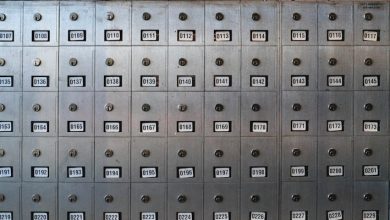The Use of Blockchain for Public Records and E-Governance

- Introduction to Blockchain Technology
- Benefits of Using Blockchain for Public Records
- Challenges and Limitations of Implementing Blockchain in E-Governance
- Case Studies of Successful Blockchain Implementation in Public Records
- Security and Privacy Considerations in Blockchain for E-Governance
- Future Trends and Potential Applications of Blockchain in Government Services
Introduction to Blockchain Technology
Blockchain technology is a revolutionary innovation that has the potential to transform public records and e-governance systems. In simple terms, a blockchain is a decentralized, distributed ledger that records transactions across a network of computers. Each transaction is verified by multiple participants, or nodes, on the network, making it secure and transparent. This technology eliminates the need for intermediaries, such as banks or government agencies, to authenticate transactions, speeding up processes and reducing costs.
One of the key features of blockchain technology is its immutability. Once a transaction is recorded on the blockchain, it cannot be altered or deleted. This makes blockchain an ideal solution for public records and e-governance, where data integrity and security are paramount. By using blockchain for public records, governments can ensure that information is tamper-proof and accessible to all stakeholders in real-time.
Another benefit of blockchain technology is its transparency. All transactions on the blockchain are visible to all participants, creating a high level of accountability. This transparency can help reduce corruption and fraud in e-governance systems, as any suspicious activity can be easily identified and investigated. Additionally, the decentralized nature of blockchain ensures that no single entity has control over the data, further enhancing trust in the system.
Overall, blockchain technology holds great promise for improving public records and e-governance systems. By leveraging the security, transparency, and immutability of blockchain, governments can streamline processes, reduce costs, and increase trust among citizens. As more governments around the world adopt blockchain technology, we can expect to see a more efficient and accountable public sector.
Benefits of Using Blockchain for Public Records
There are numerous benefits to using blockchain technology for public records. One of the main advantages is the enhanced security that blockchain provides. The decentralized nature of blockchain means that data stored on the technology is secure and cannot be altered without the consensus of the network. This helps to prevent fraud and tampering of public records.
Additionally, using blockchain for public records increases transparency and accountability. Since blockchain is a transparent and immutable ledger, it allows for greater visibility into the data stored on it. This can help to build trust between governments and their citizens, as all transactions are recorded and cannot be changed retroactively.
Furthermore, blockchain technology can streamline processes and reduce costs associated with maintaining public records. By digitizing records and storing them on a blockchain, governments can save time and resources that would otherwise be spent on manual record-keeping and verification.
Another benefit of using blockchain for public records is the increased efficiency it provides. With blockchain, records can be accessed and updated in real-time, eliminating the need for paper-based processes that can be time-consuming and prone to errors. This can lead to faster decision-making and improved service delivery for citizens.
Challenges and Limitations of Implementing Blockchain in E-Governance
Implementing blockchain in e-governance presents several challenges and limitations that need to be addressed for successful integration. One of the main hurdles is the lack of awareness and understanding among government officials and citizens about blockchain technology and its potential benefits. This can lead to resistance to change and reluctance to adopt new systems.
Another challenge is the complexity of integrating blockchain with existing e-governance systems and processes. This requires significant resources, expertise, and time to ensure a seamless transition without disrupting current operations. Additionally, there may be compatibility issues with legacy systems that need to be resolved to effectively leverage blockchain technology.
Security and privacy concerns also pose a significant challenge when implementing blockchain in e-governance. While blockchain is known for its secure and transparent nature, there are still vulnerabilities that need to be addressed to prevent data breaches and cyber attacks. Ensuring the privacy of sensitive information while maintaining transparency is a delicate balance that governments must navigate.
Moreover, scalability and speed limitations of blockchain technology can hinder its widespread adoption in e-governance. The current infrastructure may not be able to handle the volume of transactions required for public records and services, leading to delays and inefficiencies. Improvements in blockchain technology are needed to address these limitations and make it more suitable for large-scale e-governance applications.
Case Studies of Successful Blockchain Implementation in Public Records
Several successful case studies have demonstrated the effective implementation of blockchain technology in public records management and e-governance. These examples showcase the potential of blockchain to enhance transparency, security, and efficiency in government processes. Here are some noteworthy instances of blockchain implementation in public records:
- **Georgia’s Land Title Registry**: Georgia successfully implemented blockchain technology to secure its land title registry. By using blockchain, Georgia was able to ensure the integrity of land records, reduce fraud, and streamline the process of property transactions.
- **Sweden’s Land Registry**: Sweden implemented blockchain to digitize its land registry, making it more accessible and secure. This initiative has improved the transparency of land ownership and reduced the risk of fraud in property transactions.
- **Estonia’s E-Governance**: Estonia is known for its advanced e-governance system, which leverages blockchain technology for secure digital identities and public records. By using blockchain, Estonia has created a seamless and efficient digital infrastructure for various government services.
- **Dubai’s Blockchain Strategy**: Dubai has launched a comprehensive blockchain strategy to transform its government services. This initiative aims to digitize public records, streamline administrative processes, and enhance the overall efficiency of government operations.
These case studies illustrate the diverse applications of blockchain in public records and e-governance. By leveraging blockchain technology, governments can improve data security, enhance transparency, and optimize service delivery for their citizens. As more countries embrace blockchain for public records management, the potential for innovation and efficiency in governance continues to grow.
Security and Privacy Considerations in Blockchain for E-Governance
When considering the implementation of blockchain for public records and e-governance, it is crucial to address the security and privacy considerations associated with this technology. Blockchain offers a decentralized and immutable ledger, which can enhance transparency and accountability in government processes. However, there are certain risks and challenges that need to be taken into account to ensure the integrity of the system.
One of the main security concerns with blockchain is the potential for cyber attacks and data breaches. As public records often contain sensitive information, such as personal details or financial transactions, it is essential to implement robust security measures to protect the data stored on the blockchain. This includes encryption, multi-factor authentication, and regular security audits to identify and address any vulnerabilities.
Another aspect to consider is the privacy of the data stored on the blockchain. While blockchain offers transparency and immutability, it also raises concerns about data privacy and confidentiality. It is important to establish clear guidelines and regulations regarding access to the information stored on the blockchain, ensuring that only authorized parties can view or modify the data.
Moreover, the use of smart contracts in e-governance can introduce additional security risks. Smart contracts are self-executing contracts with the terms of the agreement directly written into code. While they can streamline processes and reduce the need for intermediaries, they are susceptible to bugs and vulnerabilities that can be exploited by malicious actors. It is crucial to conduct thorough testing and auditing of smart contracts to mitigate these risks.
In conclusion, while blockchain has the potential to revolutionize public records and e-governance, it is essential to address the security and privacy considerations to ensure the integrity and reliability of the system. By implementing robust security measures, establishing clear guidelines for data privacy, and conducting thorough testing of smart contracts, governments can harness the benefits of blockchain while safeguarding against potential risks and threats.
Future Trends and Potential Applications of Blockchain in Government Services
Looking ahead, the future trends and potential applications of blockchain in government services are vast and promising. As technology continues to advance, blockchain is poised to revolutionize the way public records are managed and e-governance is conducted.
One of the key trends that we can expect to see is the widespread adoption of blockchain technology by government agencies around the world. This will not only streamline processes and improve transparency but also enhance security and reduce the risk of fraud and corruption.
With blockchain, public records can be securely stored and accessed in a decentralized manner, ensuring that they are tamper-proof and immutable. This will help to build trust among citizens and stakeholders, ultimately leading to more efficient and accountable government services.
Additionally, blockchain can be used to facilitate secure and transparent voting systems, enabling citizens to participate in elections and decision-making processes with confidence. This could help to increase voter turnout and engagement, leading to a more inclusive and democratic society.
Overall, the potential applications of blockchain in government services are vast and varied. From public records management to e-governance, blockchain has the power to transform the way governments operate and interact with their constituents. As technology continues to evolve, we can expect to see even more innovative uses of blockchain in the public sector in the years to come.



